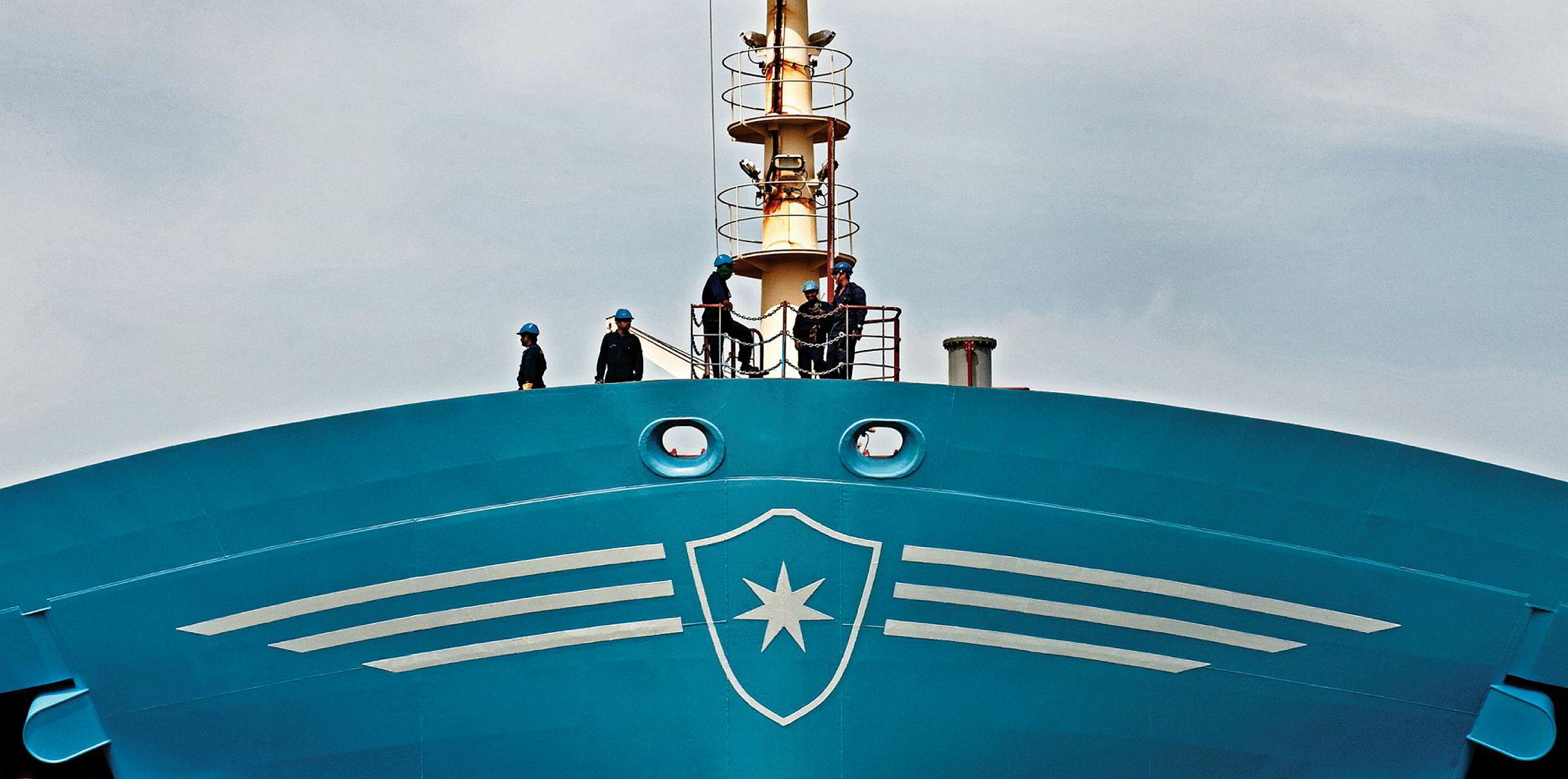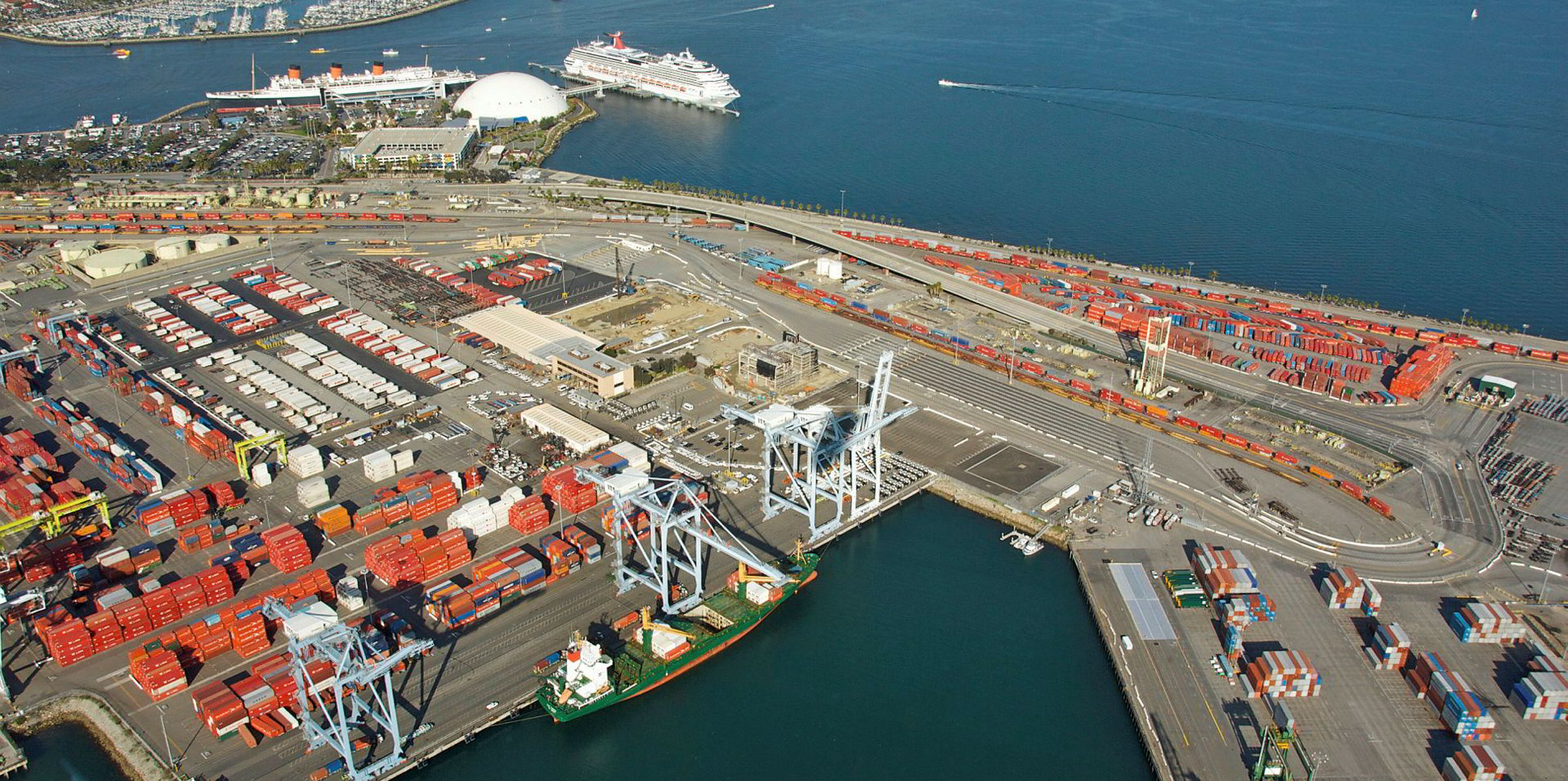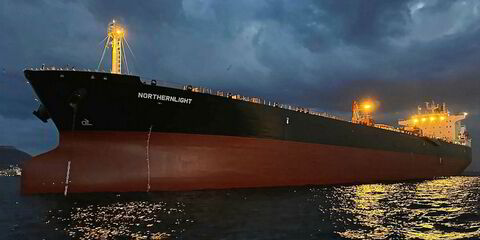Denmark's AP Moller-Maersk has secured an upgrade by Fearnley Securities after big stock falls this year.
Analysts Espen Landmark Fjermestad, Peder Nicolai Jarlsby and Ulrik Mannhart said the shipping giant's valuation, measured by enterprise value divided by invested capital, is nearing the all-time low seen in 2018.
This ratio is currently 0.8, against a 10-year average of 1.
They also said the effects of the coronavirus outbreak on demand appear to be manageable for the container carrier.
Maersk's shares have lost 35% of their value so far in 2020.
In recent weeks container volumes have slowly returned out of China. Rival CMA CGM said on Tuesday that the outbreak would cost it $150m in the first quarter, about 4% of the Ebitda it logged in 2019.
"This is significantly less than consensus expectations in our view, and ascribes to numerous blank sailings which lowered opex by circa 70%," said Fearnley Securities, the financial arm of broker Fearnleys.
Cash keeps coming
In a similar scenario for Maersk, and assuming the impact lasts throughout the first three months, the analysts are cutting their estimate of full-year 2020 Ebitda 13% to $5bn.
But its "tight" capital expenditure plan for 2020 and 2021 will ensure a free cash flow yield of between 12% and 14%. This should be $2.4bn in 2020.
"With significantly lower fuel prices and Asia to Europe contract renewals said to be on par with 2019 levels, we believe not much is needed to lift sentiment from here," Fearnley Securities added.
The target price for the share is unchanged at DKK 8,100 ($1,229), against DKK 6,350 on Wednesday.
Fearnley Securities sees hope for the sector as continued scrubber installation programmes — delayed by the Covid-19 outbreak — take tonnage out of the market.
Freight rates should be largely flat year on year.
Maersk last week said it is moving into the third phase of its huge $1.5bn share buyback.
The Nasdaq Copenhagen-listed boxship specialist said it will seek to repurchase another DKK 2.4bn of its stock through to July.
This implies that about 6.5% of outstanding shares will be bought back by the end of the year, which on top of ordinary dividends suggests shareholder distribution in excess of 7% this year alone, the analysts said.
The group posted a loss in the fourth quarter as it adjusted vessel capacity to protect its margins.
The net deficit was $61m, against a profit of $44m in the same period of 2018, while it also paid more tax last year. Ebitda increased by 1% to $1.5bn.





